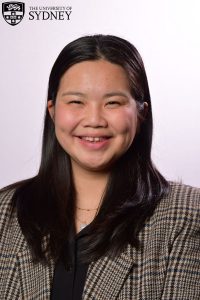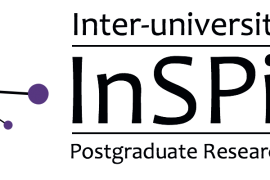In this article, student partner Cherie Tse, student in the Bachelor of Arts/Law IV cohort, shares how she and her peer, Edward Ford, led student focus groups to learn about the real barriers faced by Law students.

We know that Law students face particular challenges to their learning, with additional barriers faced by student groups from different backgrounds. As students, we worked in partnership with law academics Dr Natalie Silver and Professor Penelope Crossley on the 2024 Strategic Education Grant: Transforming legal education using inclusive inquiry-based approaches, embedded dialogic feedback and authentic assessment.
As student partners, we aimed to explore barriers to diverse student engagement in the Law School classroom. We focused on using inclusive inquiry-based approaches, embedded dialogic feedback, and authentic assessment methods. Before we began, the grant team (staff and students) undertook focus group training by Educational Innovation. Once trained, we were tasked with designing, organising and facilitating our own focus groups with current law students to uncover and understand the barriers different types of law students were facing.
Through the recruitment process, we offered a free lunch and a $100 Westfield Voucher to incentivise law students (in both LLB and JD cohorts) to participate. The composition of the focus groups we decided upon were as follows:
- an international student-focused group
- an international-Chinese mainland-focused group
- a women and gender-diverse group and
- a mixed group consisting of men and women.

We also held a pilot focus group to ensure our informal facilitation and focus group protocol would run smoothly.
Not only did we receive large expressions of interest, the 15–20-minute lunch with participants before recording also allowed us to build a sense of cohort and positive environment in the focus groups. We found that these lunches acted as informal icebreakers. After eating and introductions, participants were more willing to open up during the focus group session. Although we also implemented a quick icebreaker activity within the focus group, the lunch prior to the recording was a more organic way for participants to ease into the group dynamic.
After reflecting on the conduct and results of our focus groups, we felt the participants were comfortable sharing their open and honest opinions with us in a peer-to-peer setting. The participants explicitly asked if there would be any teaching staff in the room with us during the recording.
When it was affirmed there would be no lecturers or staff members present, students immediately relaxed, participants freely (and frequently) used swear words and spoke of specific law units or specific tutors and how to improve classroom dynamics. Participants were able to express their blunt and honest thoughts without the pressure of being identified or judged by teaching staff.
For example, students were not afraid to indicate they hadn’t done required readings for years of their degree and were open and emphatic when expressing experiences such as feeling disconnected from the larger cohort.
Sharing our own experiences as students also created a sense of cohort and empathy. For example, my own identity as an Asian-Australian woman who speaks Cantonese [and Mandarin] provided representation and support for participants in the International and Mainland China focus group. My identity and positionality also better facilitated the women and gender diverse group because I was able to identify specific experiences they could empathise with and relate to. We could see the positive impact that having two different student partners of different genders and ethnicities had on the focus groups, as we were able to relate to different demographics and draw out honest opinions about a wide range of participants’ experiences. Having two student partners also allowed us to work collaboratively by switching roles as facilitator and observer depending on the specific demographics of each focus group.
As student partners, we both suffer from equity issues, so when we brought this up in the focus groups, we noticed other students bounce off our honesty and openness by sharing how their disabilities hinder them from participating in class (e.g. students with ADHD; students with autism; chronic health issues). This created a positive effect, as the conversation easily transitioned into issues such as gender, equity, and language barriers without much hesitation (issues which, typically, people have reservations in explicitly disclosing, especially in a formal academic context).
We also decided to implement the ‘post it note’ activity suggested in the Educational Innovation training seminar we attended. This consisted of 1) posing a question to the group; 2) giving them time to write down the issues affecting their ability to participate in class on sticky notes and stick them on a whiteboard; 3) participants voted on which issues on the board affected them most, and 4) based on these votes, student partners grouped the major issues and trends arising and participants led the discussions based on the different issues identified. We found this activity particularly useful for thematic analysis, as well as an informal structure for the focus group discussions.
Overall, we found it useful for the methodology and process for focus groups to be student- run, allowing students to give candid, honest and respectful opinions about their experience in the classroom and other aspects of Law School that impact their ability to engage.
Find out more
Watch Edward and Natalie present on Using Student-led Focus Groups to Uncover Barriers to Diverse Student Engagement at the recent 2024 Sydney Teaching Symposium: recording
If you are interested in conducting your own Student-Led focus groups as part of a student partnership initiative please contact: [email protected]
This work was funded under the 2024 University of Sydney Strategic Education Grants.





